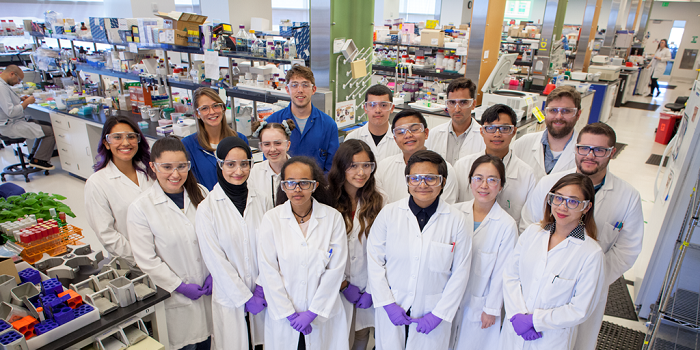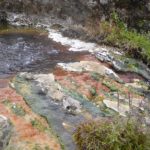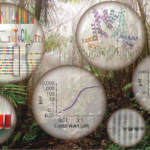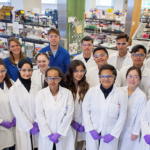In the quest to find the key to a rainforest-dwelling bacterium’s lignin-degrading ability, researchers at the Joint BioEnergy Institute (JBEI) have constructed a gene expression system that outperforms conventional systems, called Jungle Express. Controlling gene expression is crucial to scientists’ ability to perform basic science and biotechnological research to produce enzymes, bio-based products, and biofuels, both at the bench and on industrial scales. Read the Science Short on the Berkeley Lab News Center.
Welcome Biosciences’ New Deputy of Operations, Nikki Humphreys
As Biosciences ALD Mary Maxon announced last week, Nikki Humphreys has accepted an offer to become the Biosciences Area Deputy of Operations. In addition to overseeing operations and finance for the Area, she will serve as the Deputy for Operations of the Biosciences Operations at Berkeley Center, and the Molecular Biophysics and Integrated Bioimaging (MBIB) and Environmental Genomics and Systems Biology (EGSB) Divisions.
Another Great Year for the Biotech Partners at the Biosciences Area
 This past Saturday, August 11, seven Biotech Partners high school students who interned at the Biosciences Area participated at the Biotech Partners end of summer celebration and poster competition. Four of the seven Biosciences interns made it to the finalists round of the poster competition. Mitzy Rubio from the Biological Systems and Engineering (BSE) Division received an honorable mention for “Most Creative Poster” and Raven Young from the Joint Genome Institute (JGI) received an honorable mention for “Best Oral Presentation”.
This past Saturday, August 11, seven Biotech Partners high school students who interned at the Biosciences Area participated at the Biotech Partners end of summer celebration and poster competition. Four of the seven Biosciences interns made it to the finalists round of the poster competition. Mitzy Rubio from the Biological Systems and Engineering (BSE) Division received an honorable mention for “Most Creative Poster” and Raven Young from the Joint Genome Institute (JGI) received an honorable mention for “Best Oral Presentation”.
iCLEM Cohort Concludes Summer Research at JBEI
 The Introductory College Level Experience in Microbiology (iCLEM), the Joint BioEnergy Institute’s flagship outreach program, concluded last week with a celebration which included a students’ presentation and a poster presentation by the teachers who assisted the program. Photos of the celebration are available online. Check out also the Twitter campaign in which the students shared highlights of their summer experience at JBEI.
The Introductory College Level Experience in Microbiology (iCLEM), the Joint BioEnergy Institute’s flagship outreach program, concluded last week with a celebration which included a students’ presentation and a poster presentation by the teachers who assisted the program. Photos of the celebration are available online. Check out also the Twitter campaign in which the students shared highlights of their summer experience at JBEI.
Do Bacteria Ever Go Extinct? New Research Says Yes
 Patrick Shih, Director of Plant Biosystems Design at the Joint BioEnergy Institute (JBEI) and faculty scientist with the Environmental Genomics & Systems Biology (EGSB) Division, collaborated with a team of researchers led by the University of British Columbia in a new study that has found that bacteria go extinct at substantial rates, although appear to avoid the mass extinctions that have hit larger forms of life on Earth. The finding contradicts widely held scientific thinking that microbe taxa, because of their very large populations, rarely die off. The study “Bacterial diversification through geological time,” published today in Nature Ecology and Evolution used massive DNA sequencing and big data analysis to create the first evolutionary tree encompassing a large fraction of Earth’s bacteria over the past billion years. To learn more read the University of British Columbia news release.
Patrick Shih, Director of Plant Biosystems Design at the Joint BioEnergy Institute (JBEI) and faculty scientist with the Environmental Genomics & Systems Biology (EGSB) Division, collaborated with a team of researchers led by the University of British Columbia in a new study that has found that bacteria go extinct at substantial rates, although appear to avoid the mass extinctions that have hit larger forms of life on Earth. The finding contradicts widely held scientific thinking that microbe taxa, because of their very large populations, rarely die off. The study “Bacterial diversification through geological time,” published today in Nature Ecology and Evolution used massive DNA sequencing and big data analysis to create the first evolutionary tree encompassing a large fraction of Earth’s bacteria over the past billion years. To learn more read the University of British Columbia news release.
- « Previous Page
- 1
- …
- 27
- 28
- 29
- 30
- 31
- …
- 46
- Next Page »
Was this page useful?







